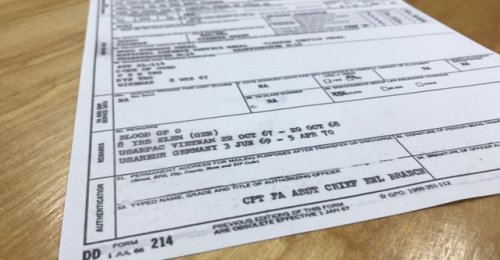
How to File a Well-Developed MST Claim

Elements of Your Claim
Military sexual trauma (MST) is sexual harassment that is threatening or physical assault of a sexual nature. Both men and women serving in the military can suffer from MST. MST is an experience, not a diagnosis. MST may cause disabling conditions such as post traumatic stress disorder (PTSD), anxiety, depression and sexual arousal disorder. Your claim for VA Disability Compensation (“VA benefits”) must identify at least one “disabling condition.” The VA addresses MST differently than other issues because of its severity and complexity.
To win an MST claim you will need the following:
1. A Completed VA Form 21-526
2. Diagnosis of PTSD, anxiety, or depression from your healthcare provider.
3. Nexus Letter/Independent Medical Opinion (see definition of “nexus” below) signed by your doctor.
4. Evidence
Filing Your Claim
It is important to file your claim as soon as you can. When a claim is awarded, the compensation is calculated back to the date you filed your claim.
Do not rush while filling out the form. Every section must be filled out except for sections VII, VIII, IX, and X. If something does not apply to you, then put ‘N/A,” “not applicable.”
Do not leave any of the required boxes blank as this may delay your claim.
You do not need to attach all of your evidence when you first file. You can send your nexus letter (see explanation below) and other evidence as you collect it. Go to our "How to File A VA Claim for Disability Compensation" guide for more help on filling out VA Form 21-526. Make copies of everything you send to the VA.
Diagnosis
You must have a diagnosis (for example, PTSD, anxiety, depression and/or sexual arousal disorder) from your doctor. Again, filing for “MST” won’t work because MST is the cause, not the condition.
Nexus Letter/Independent Medical Opinion
A letter from your doctor or a note in your medical record saying it is “more likely than not” that your disability was caused/aggravated by an event during your military service (service-connected) is a “nexus letter or note.” For example, a nexus letter needs to say:
- "After reviewing the medical records of [Veteran's name], it is my opinion that more likely than not, their [insert the condition you are filing for] is a direct result of military sexual trauma they experienced while serving on active duty."
Evidence
One way that MST claims are treated differently is the use of “alternative evidence.” In the past, evidence of sexual assault (service medical records (SMR), police reports, and rape-kits) was often "sanitized" (deleted) from military records. Or, evidence never existed in the first place because the survivor did not come forward for fear of retaliation. Because MST claims usually lack “traditional” evidence, a person filing for a service-connected condition, mental illness and/or a physical disability caused by MST can fill out VA Form 21-0781a. The information requested through this form can help you supply the evidence you will need to prove your claim.
If you have recently experienced repeated harassment, assault and/or rape and are currently in the service, it is very important to request that your military records be saved and unaltered for 50 years. This is referred to, in military terms, as “retention of restricted report documentation.” This means that your military records cannot be “sanitized or destroyed.” This is important so that evidence critical to your claim will not be destroyed.
When gathering evidence, you must:
- establish the event (sexual harassment and/or personal assault),
- prove that the event caused (or aggravated) your condition, and
- prove that you still suffer from the condition.
If military records have not been sanitized or destroyed, then the VA will more readily find records from any military institution you went to for assistance, such as the military police or medical facilities. Also, civilian police departments, hospitals and clinics are more likely to keep your records unaltered. Evidence from a hospital can help win your claim. The VA can request treatment records from non-military hospitals or clinics only if you complete a VA Form 21-4142 consent form. You must complete a form for each medical facility you are trying to get records from.
You can accomplish the first two requirements noted above by completing the alternative evidence form, VA Form 21-0781a.
Important: While the form allows for two incidents to be used as evidence, many experts advise against filling out a second incident. That is because the extra time needed for investigation will further delay what may become an already long claims process. If you can get police or treatment records of any kind for any incident, use that incident to complete the alternative evidence form.
Send in copies of any records that show changes or problems in your military service after the assault: a decline in performance, going to sick call, being AWOL, Article 15, civilian hospital appointments, abortion clinic records, etc. Also, send letters from people who knew you at the time or who knew you before and after your service. They should describe your behavioral changes. Each letter should be signed: “I swear this is true and accurate to the best of my knowledge.”
Global Assessment of Function (GAF) scores can be assigned by your mental health provider at each appointment you have. Attach your GAF score to VA Form 21-526 (link is external) or send it in with your VA file number (usually your social security number) by certified mail, return receipt requested. To get a GAF score, you may need to specifically ask for one. However, some advocates believe that the GAF scores are less important to VA decisions now.
MST Coordinators within the VA
The VA now has a system of MST Coordinators available around the country, who are available to help with claims and to review past denials of MST claims. General information about their approach is available here.
To find an MST Coordinator in your area, call 1-800-827-1000 or look up your State MST coordinator name and contact information here. However, you may still want help from a VSO or attorney advocate in developing your claim.
February 2019, Updated July 2020
